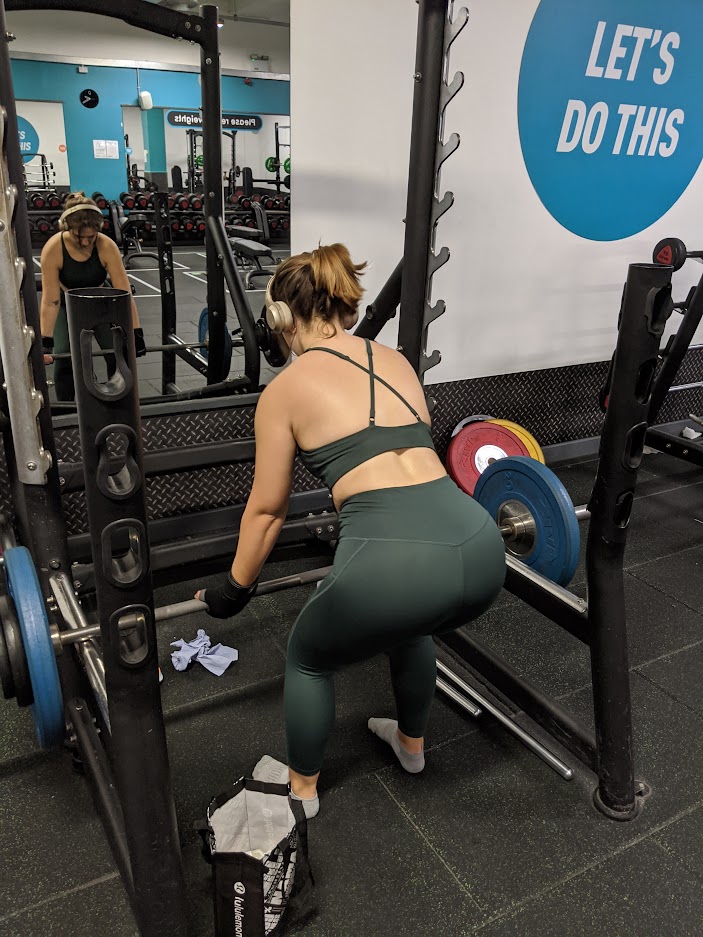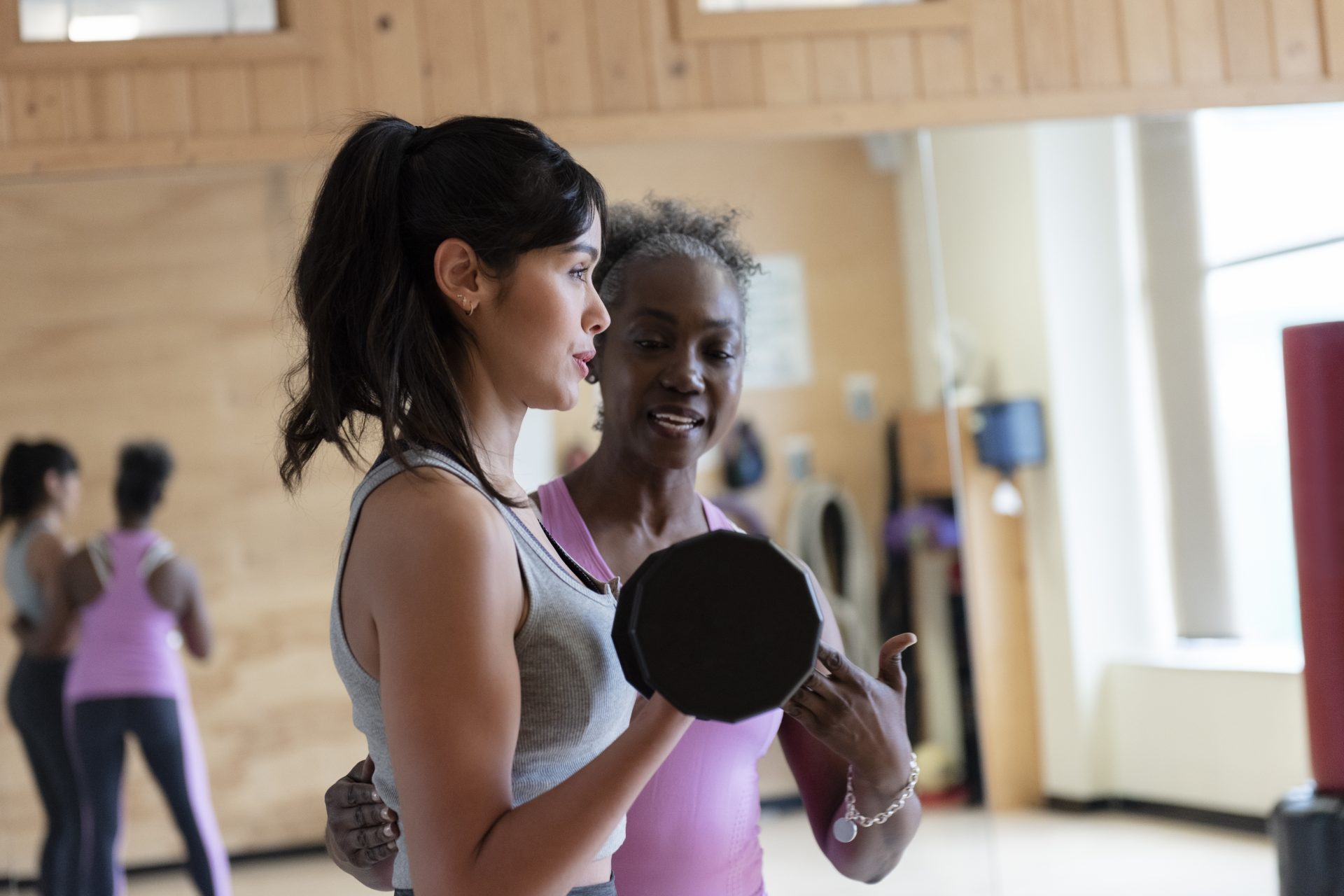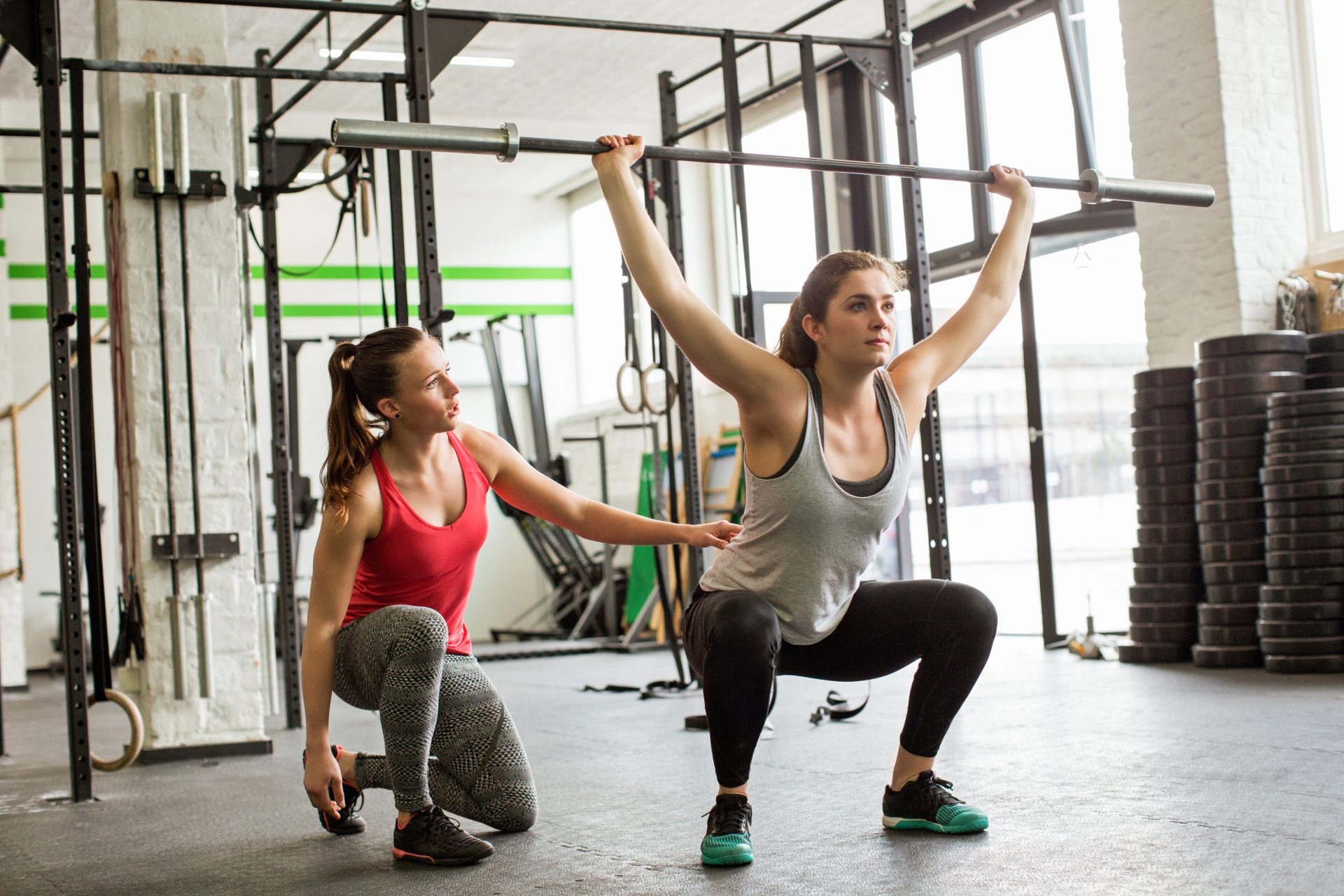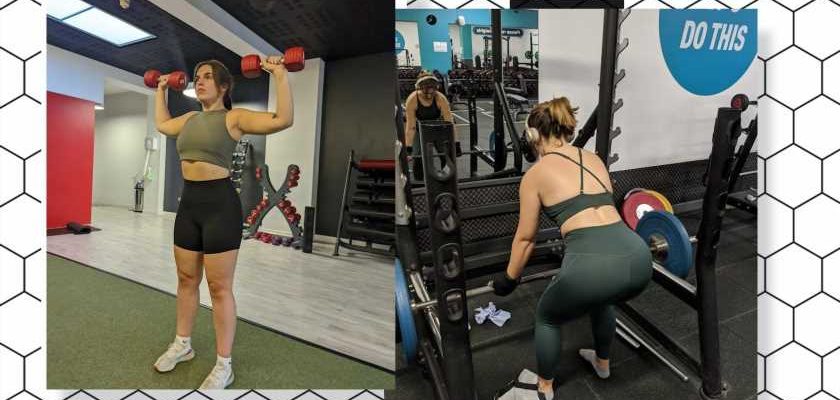“Why I got a weightlifting coach 4 years into my fitness journey”
What Stylist’s Amy Beecham learned when she went back to weightlifting basics with a personal trainer.
Like most people, when I first started weight training at the gym, I felt like I had no idea what I was doing. The idea of using free weights was extremely intimidating and I was constantly terrified that someone would correct my bad form or, worse, laugh at my attempts to push the barbell over my head.
Slowly but surely, after training with knowledgeable friends and watching hours of fitness YouTube, my confidence started to grow.
I found myself falling in love with the same exercises that once scared me and pushing myself harder than I ever could. I hit huge strength milestones, including lifting 100kg, which only spurred me on further.
But even though I’d never been happier with how I looked or felt, four years into my fitness journey I decided to get a personal trainer.
You may also like
Personal trainers: why women want unique health and fitness advice after lockdown
Many consider working with a PT or coach something you only do when you’re first starting out at the gym. For beginners, having someone to help you learn the basics of form and show you how to properly use the equipment is extremely beneficial. But they also offer a lot of value to those with a bit more experience.
Coaches aren’t just for beginners
Because of the stop-start nature of my training throughout lockdown, I started to find the workouts that once left me feeling energised and strong were falling flat. While I’d perfected my rack pulls, shoulder press and lat pulldowns, I was bored of doing the same things over and over again.
When I started working with Aylish, I explained that while I had a lot of knowledge and experience, I was really keen to shake things up and get out of my exercise rut.
She immediately understood, changing my old body splits to four full-body sessions a week and pushing me towards pyramids and supersets to get the most out of my workouts.
With a master’s in nutrition, she was also able to give me qualified advice on how to up my protein intake and helped me to stay on track with all the other aspects of my life that support fitness – from sleep to water intake.
Under her coaching, I hit huge PBs, including 30kg overhead presses and 120kg hip thrusts. After nearly seven months of working with her, I’ve never felt more secure or excited about my training.

You may also like
How to find the right personal trainer for you (in 5 easy steps)
There’s always more you can learn
Personal trainer Jenny agrees that around 30-40% of her clients are a few years into their fitness journeys.
“It’s great when I start working with a non-beginner because they already have a basic understanding of their body and its abilities; this means that we’re able to progress that little bit quicker compared to someone who’s just starting out,” she tells Stylist.
“If you’ve hit a plateau in your fitness journey, a coach can use their knowledge and expertise to find different ways to train in order for you to continue to improve and make progress.”
Even when we know what we’re doing, when we’re working out on our own, it’s easy to pick up bad form habits like butt winks or knee valgus when squatting.
“When it comes to weightlifting, there are a lot of bad examples of form out there on social media, and because of this, people can pick up bad habits that may lead to injury, so it’s really important that this is addressed,” continues Jenny.

Personal trainers help you set – and stick to – goals
As you develop and get stronger in your training, your goals should adjust too. But sometimes it can be hard to know just how much you need to push in order to reach them.
“I believe personal training should be a journey where the trainer helps the client with gradual and consistent growth,” explains Haylene Ryan-Causer, founder of the Energy Studio at Volonte.
“When training alone, it’s easy to get into a comfort zone when you have been training for a while, with no idea on what to change and how to progress further. It’s important to constantly adjust your goals as you progress in your journey to avoid monotony, and a trainer can help achieve this.”

I’m now back to training on my own, but I have a renewed sense of purpose, accountability and enjoyment thanks to my time under Aylish’s coaching.
The biggest lesson I learned was that there’s always a way to improve, and not to be scared of going ‘back’ to basics to ensure that the foundation you’re building your training on is the right one.
Despite feeling like an expert, I made sure to approach the experience with an open mind, ready to be corrected and given new insights into my workout style, including what was going well and what could be better.
How to find the right PT for you
“Look for someone with experience, who has been around the block a bit,” suggests Hollie Grant, founder of Pilates PT.
“Instructors who work full time, for many years, and with lots of different clients and bodies will have fine-tuned their training and developed a large repertoire of exercise variations. Newly qualified PTs will have bags of energy and passion, but it can take a while to build your knowledge bank, and you need a PT who can continually challenge you and ensure you progress.”
Grant also stresses that it’s important to be honest about what experience you already have.
“Don’t downplay your performance; be open about what you like and don’t like,and really explore what your new goals are. Be open to shopping around too – you may not love the first PT you try. There’s someone out there for everyone and you don’t have to settle for someone who doesn’t work for you.”
For more training advice, visit our Strong Women Training Club.
Images: Getty/Amy Beecham
Source: Read Full Article
